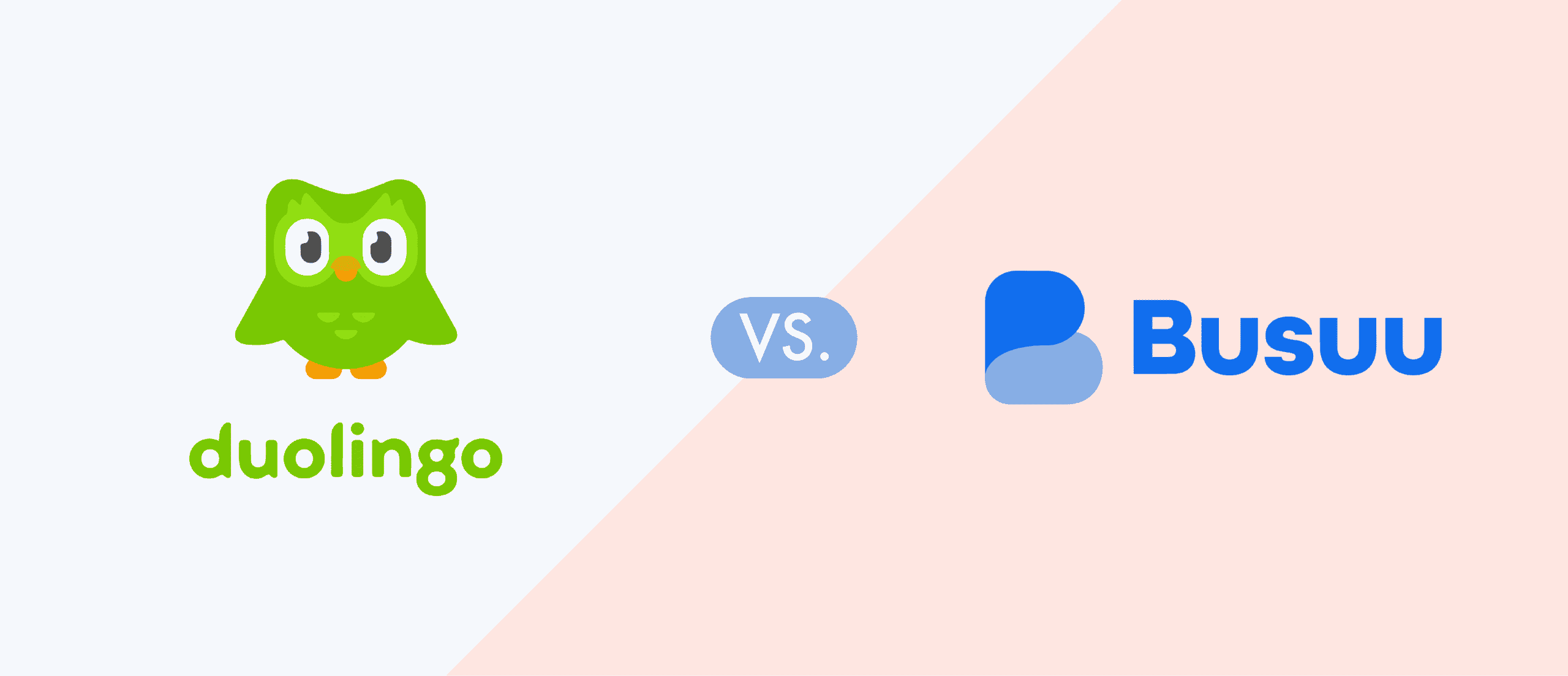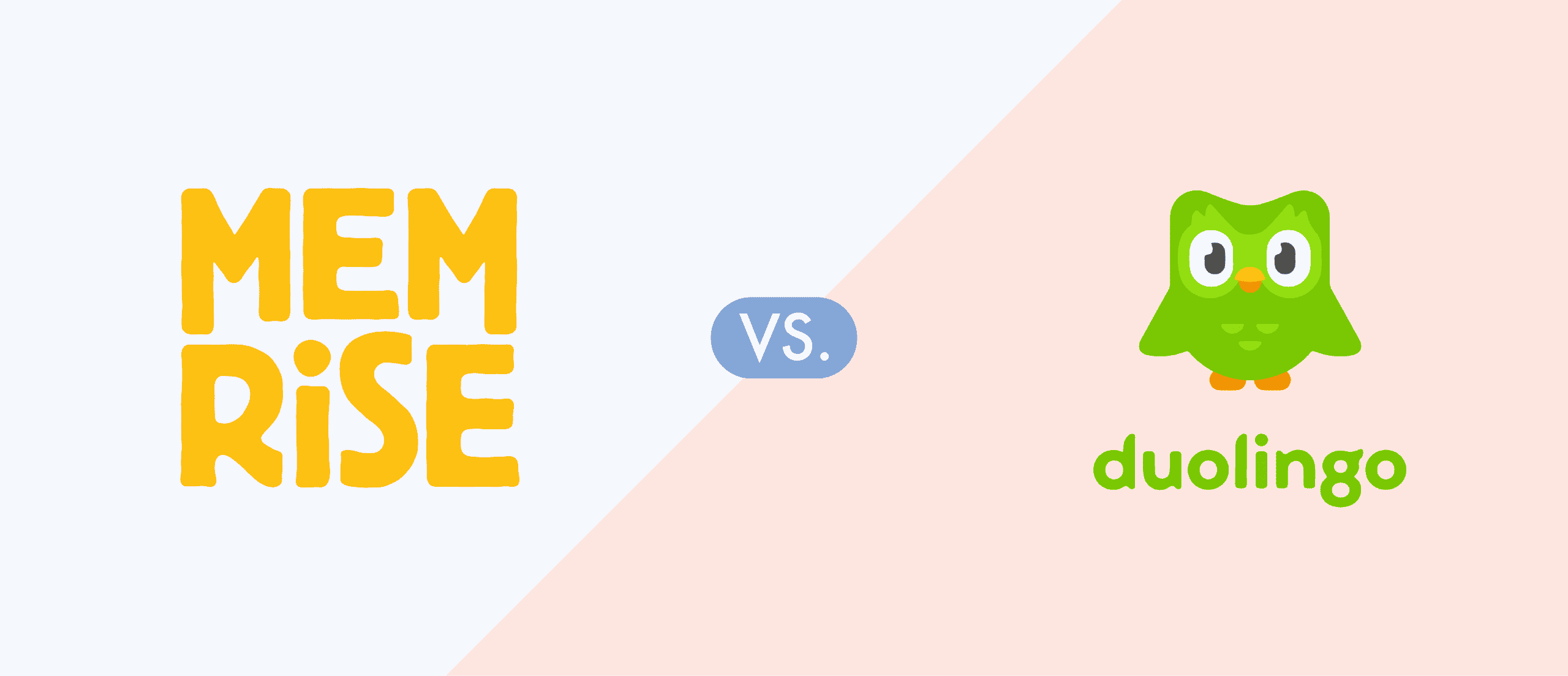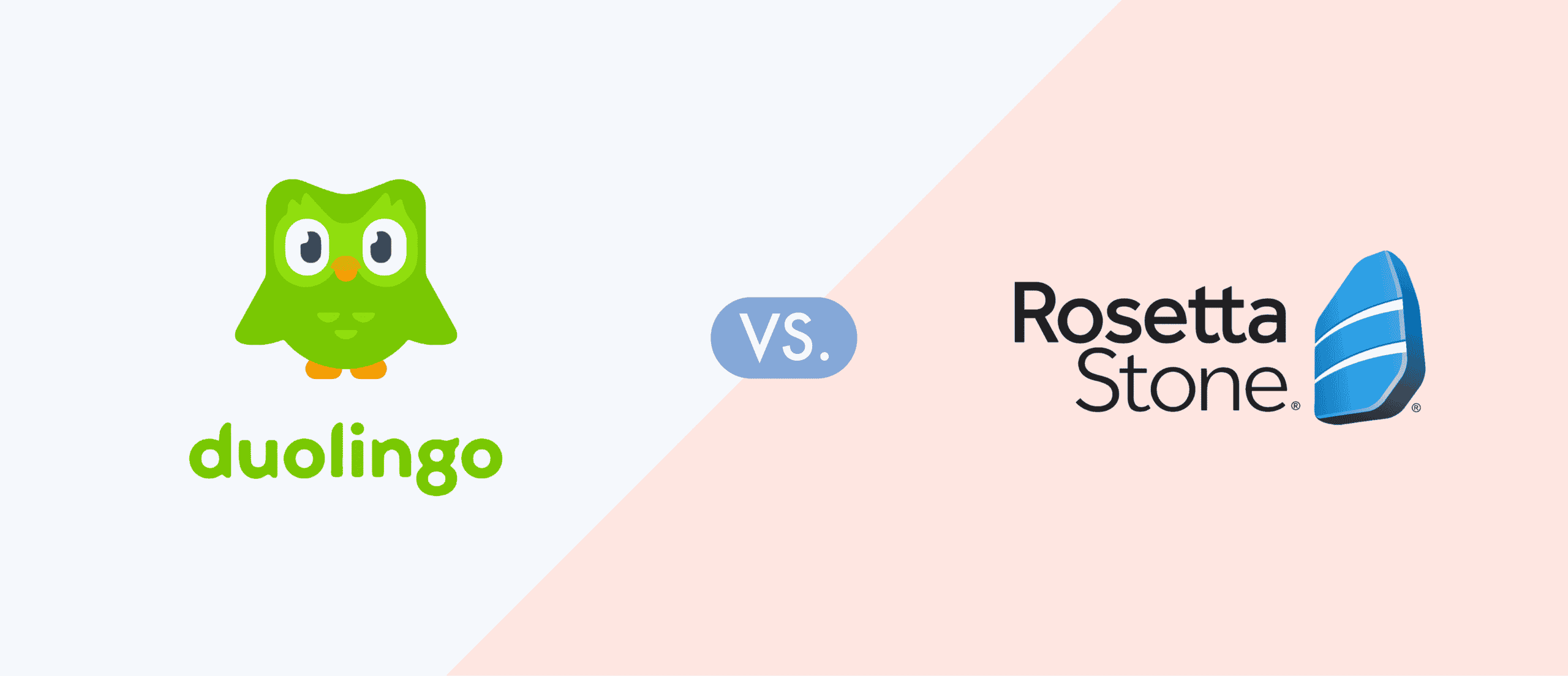Duolingo vs. Busuu
Updated: 13. Mar, 2023
The benefits of language learning extend beyond pure fun. It may be quite helpful in many facets of your life. Attending a language class might be challenging in our hectic and busy lives, so you might want to consider a digital learning possibility. It might be difficult to know all available digital learning alternatives. Language learning apps are useful tools. Presently, there are several language study applications available. Busuu and Duolingo are two well-known examples.
Online language learning apps, Busuu and Duolingo, support many languages. They are major companies in the language learning market. The more well-known site, Duolingo, is recognized for its humorous and entertaining branding and gamified learning strategy. Contrarily, Busuu offers its brand as an alternative that emphasizes practical learning.
However, owing to the similarities between these apps, users often struggle when choosing which one to use to learn a new language. In this article, we will compare Busuu with Duolingo. Additionally, we will assist you in choosing the best language learning software to meet your needs.
Overview of Duolingo
Duolingo is the first free language-learning app to compete with pricey premium programs. It provides a ton of self-paced tasks to aid in developing a foundational knowledge of other languages or reviewing one you already know.
The mobile gaming environment is incredibly entertaining and aids in preventing studying ennui. Of course, you can study while having fun with Duolingo. Still, you can develop your abilities without feeling like you’re working.
You do not feel lost using the app, which is incredibly user-friendly. The features (XP, league, levels, etc.) provide a fun aspect and make it simple to locate the essential aspects.
Duolingo is appropriate for people of all ages. Still, it is particularly well suited for those currently learning a language who want to review and use it daily.
Duolingo offers lessons in 36 languages, excluding those used in fictional works, for English speakers. In addition, it offers more for those who are learning foreign languages.
Additionally, Duolingo offers courses for people of many languages who desire to learn English. These languages include Tagalog, Tamil, Telugu, Thai, Turkish, Ukrainian, Vietnamese, Arabic, Chinese, Czech, Dutch, French, German, Greek, Hindi, Hungarian, Indonesian (Bahasa), Italian, Japanese, Korean, Polish, Portuguese, Punjabi, Romanian, Russian, and Spanish.
Overview of Busuu
In 2008, McGraw-Hill Education launched the language learning software Busuu. Busuu has swiftly established itself as one of the key participants in the online language learning market. The name of the app is derived from the Busuu language of Cameroon.
Busuu’s cutting-edge social component, where users can add each other as friends and exchange reviews, suggestions, and advice, helps it stand out from the competitors.
As a result, you have the chance to establish true relationships with other users, almost increasing the learning environment’s intimacy and authenticity.
You can learn 12 different languages with Busuu. These languages include English, Spanish, French, German, Italian, Portuguese, Arabic, Russian, Chinese, Japanese, Polish, and Turkish.
Based on the CEFR levels, every language course has many competency levels. Busuu offers you an official certificate if you successfully finish the language course, unlike other language learning applications.
Busuu offers a free version. Unfortunately, the free version has several limitations. The app also includes features like interactive flashcards and dialogues that illustrate words in context.
Although Busuu’s premium membership includes everything you need to learn a language, it only supports one language per subscription. This plan lets you enjoy some features. These features include offline mode, grammar lessons, AI vocabulary review, and feedback from the community. The Premium Plus plan gives you unlimited access to all the features Busuu offers.
Similarities between Duolingo and Busuu
There are some similarities between these two language apps:
Course
Duolingo and Busuu offer courses in a wide range of languages, including popular ones like Spanish, French, German, and Chinese, as well as lesser-known languages like Welsh, Swahili, and Turkish.
Interactive learning
Duolingo and Busuu use interactive and gamified approaches to language learning. They use gamification, quizzes, and progress-tracking techniques to keep learners engaged.
Social Features
Both platforms offer social features that allow learners to connect with others, practice conversation skills, and receive feedback from native speakers.
Certification
Both platforms offer language proficiency certification, with Duolingo offering its certification test and Busuu partnering with language certification organizations like McGraw-Hill Education and Pearson.
Easy and Ready to Use
After installing the apps and signing in, you can start using them straight away. Both applications are well-designed, with most program information laid out clearly for users to browse.
Differences between Duolingo and Busuu
Duolingo and Busuu differ because of their varying features. Some of the differences between these two apps are:
1. CEFR levels
You should consider using Busuu if you need formal language certification to prove your abilities.
The majority of the online language courses Busuu offers are taught and organized based on CEFR levels. Additionally, they give an official language certificate as proof that you reached the required CEFR language level. To get the certificate, you must pay for the Busuu Premium Plus plan and complete the final level online exam.
On the other hand, the language lessons offered by Duolingo are not organized according to CEFR levels. So even if you have superhuman willpower and finish a whole language course on Duolingo, you won’t be able to get an official certificate.
If you are learning for fun, this is not essential. Duolingo will not be adequate if you are a non-native speaker of a language searching for a job in some countries.
2. Lesson Content
Busuu includes video snippets with native speaker speech, exposing you to genuine language. Duolingo, on the other hand, makes use of computer-based voices.
3. Grammar
Busuu offers more thorough grammatical explanations than Duolingo, which pays little attention to grammar.
The grammar explanations on Busuu are some of the best. They are brief and accurate while still being simple to grasp.
Duolingo also offers grammatical explanations. However, you can only access them using its desktop version (i.e., on their website and not the Duolingo app).
Nevertheless, Duolingo’s grammatical explanations could sometimes be confusing and hard to follow. Moreover, Duolingo only utilizes 5 to 6-word phrase examples for descriptions, which makes it difficult to understand how the concept applies in practical contexts.
Sentences on the Busuu app are longer and more complicated. This will help you talk and write with better-constructed sentences by teaching you how to combine two phrases using conjunctions.
4. Pronunciation Skills
Busuu lacks pronunciation exercises. However, it provides access to native speakers so you may hone your speaking and writing abilities.
While Busuu depends on user input for pronunciation correction, Duolingo uses its voice recognition technology. Duolingo will assess if your voice recording for the pronunciation task is right or incorrect as soon as you finish. Busuu’s voice prompt sounds more genuine and is less artificial than Duolingo’s.
5. Learning Vocabulary
Duolingo is a better option than Busuu if your objective is to learn as much vocabulary as possible.
Another benefit is that Duolingo emphasizes repetition more than Busuu does. This facilitates memorization of the fresh vocabulary. You will see slower vocabulary growth with Busuu over the same period.
6. Cost
On both Duolingo and Busuu, upgrading from a free to a premium membership costs about the same. It costs $12.99 per month for Duolingo Plus, $47.99 for six months, and $79.99 for a full year. A family plan is also available for up to six individuals and costs $9.99 per month or $119.99 annually.
Since Busuu offers two premium plans, its pricing structure is slightly unusual. Busuu offers both Busuu Premium and Busuu Premium Plus.
As both the free and paid versions of Duolingo have access to all the language learning content, upgrading to Duolingo Plus is not essential. You only receive a few more features with Duolingo Plus, such as the ability to skip courses and take lessons without an online connection.
However, with Busuu’s free subscription, you can only access a very small portion of its full library of language-learning materials. Therefore, it would be best if you upgraded to premium to get all the language learning Busuu features.
7. Language Courses
Duolingo provides a wider selection of languages than Busuu. Busuu only provides 12 language classes, but Duolingo provides more than 30.
8. Learning method
Repetition is a big part of Duolingo’s learning process (through flashcards and audio recordings of words and phrases).
Additionally, activities require you to talk and write.
It is engaging because you can win points for giving accurate answers and lose them for giving incorrect ones. You are motivated and forced to persevere by the little hearts and “strength” bar.
A key component of the Busuu teaching approach is the repetition of words and phrases, which is accomplished with flashcards and the opportunity to hear how a local speaker speaks them.
The ability to communicate with other users makes this app so fascinating. It allows you to communicate with native speakers in the best possible way. Hence, it enables you to improve your language strategies, get feedback on exercises you have already finished, and correct activities other users have completed.
Duolingo vs. Busuu
Duolingo’s free version provides access to all of its courses but with ads and some limitations, such as the number of lessons you can complete daily. Duolingo Super is the paid version, which costs $9.99 per month. It offers an ad-free experience, unlimited lessons, offline access, and additional features like a progress quiz and certificates of completion.
Busuu also offers a free version, which provides access to basic courses and features. Busuu’s premium version, Busuu Premium, starts at $6.95 monthly if you pay for a full year upfront. If you opt for a monthly subscription, the cost is $13.95 per month. Busuu Premium offers additional features like personalized study plans, grammar exercises, official certificates, and more.
Frequently Asked Questions
Is Busuu better than Duolingo?
Busuu and Duolingo are comparable apps that let students improve their language skills via enjoyable, condensed, and game-based courses. Both can be excellent choices for beginners, but the cost is one important factor that makes them different.
Although Duolingo is free to use, you should not automatically choose it as your first option. Instead, use Duolingo if you merely want to learn a language’s fundamentals.
If you wish to develop your abilities and study at a higher level, Busuu could be a better option. It is very helpful to have the opportunity to provide and receive criticism since it enables you to improve your speaking and writing skills with the assistance of native speakers.
Can you Become Fluent with Busuu?
According to Busuu’s website, using it for at least 10 minutes daily can help you master any language. This may be the case if you have some past understanding of the language you want to study or have a natural aptitude for languages.
As you know, learning a language involves a lot of practice, devotion, and frequent study. Nevertheless, no matter the platform you decide to use, you can learn any language quickly if you have high expectations for yourself. However, it is preferable to include Busuu’s teachings with the other learning resources to accomplish this aim.
How many Languages do Busuu and Duolingo cover?
Unlike Duolingo, which provides lessons in over 30 languages, Busuu only offers lessons in 12 distinct languages.
Are Duolingo and Busuu free?
No, and yes. They have free plans, but the capabilities and content are fairly limited. As a result, many users decide to switch to premium subscriptions.
How much does Busuu cost?
The basic Busuu bundle is free. You may learn one language with this.
If you choose the premium option, you can choose between two distinct purchase options: Premium and Premium Plus.
In addition to the course itself, Premium allows you access to one language. Furthermore, it offers an offline mode, extra grammar lessons, and an AI-powered lesson evaluation.
In addition to the benefits of Premium, Premium Plus grants you access to all 12 languages and offers you access to a personalized study plan, official examinations from McGraw Hill, and comments from the community of native speakers.
Your premium options and the length of your subscription determine the charges involved. You can access a one-month membership starting at $12.75 for Premium Plus or $11.69 for Premium. A 12-month subscription costs $7.72 for Premium Plus and $6.76 for Premium, respectively.
In addition, a 2-year membership costs $6.28 for Premium and $7.24 for Premium Plus. It’s important to note that annual, rather than monthly, billing is used for subscriptions of one or two years.
Who Is Busuu Best For?
Busuu is an ideal app for both new and experienced language learners. Start with Busuu if you want to learn a language in the most dynamic and useful manner possible.
What are the Advantages of Duolingo and Busuu?
The student can progress rapidly in their target language with Duolingo’s rigorous exercises and repeated repetitions. Due to the interface’s gamified appearance, young people find it enticing. A noteworthy aspect is the well-developed speech recognition technology.
Compared to Duolingo, Busuu offers more extensive language learning resources. In Busuu, students can study grammar, sentence construction, and pronunciation more effectively. Busuu guarantees immediate input from native language speakers for developing pronunciation. It also provides more accurate translations when it comes to translations.
What are the Drawbacks of Duolingo and Busuu?
Although users find the free version of Duolingo excellent, the excessive number of adverts might be annoying when learning. Real-world conversational practice is lacking in the language program classes. Over time, the game-like structure could become gimmicky.
Busuu only provides the free plan for a certain period. Therefore users are completely unable to utilize the software with the free version. Busuu does not provide voice recognition software as Duolingo does.
Does Busuu offer Money-back Guarantee?
There is a 14-day money-back guarantee in place if you are not satisfied for any reason. Thus, you could stop your subscription at any moment if you’d like.
Conclusion
Duolingo and Busuu are excellent options if you’ve been considering learning a new language for some time and are looking for an enjoyable, effective beginning.
They are really helpful as they let you organize classes around your day if you lead a hectic life and may not have a routine.
Both Busuu and Duolingo are, on the whole, well-designed, and simple to use.
They are decent choices for beginners who want to begin learning a language (or multiple languages). Busuu is better for learning proper pronunciation and speaking. Duolingo provides you with a more organized foundation in the language.
You should choose Duolingo if you want to study while having fun and are concerned about being easily bored. Thanks to the game-based environment, you can advance without feeling like you’re working. Busuu is better if you would like to study with classical classes and European language levels.
Ultimately, the best language you choose is entirely your decision to make. Hence, you must choose the one that best suits your needs and objectives.
Table of contents
Read more
Rosetta Stone vs Pimsleur
While looking for the best app to learn a new language, you must have come across Rosetta Stone and Pimsleu...
READ ARTICLE
Duolingo vs. Memrise
Making life decisions can be tough. Choosing between Duolingo and Memrise for your language learning journe...
READ ARTICLE
Duolingo Vs Rosetta Stone
As new language speakers will testify, learning a new language can be thrilling and super-exciting. But tha...
READ ARTICLE



